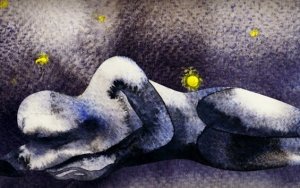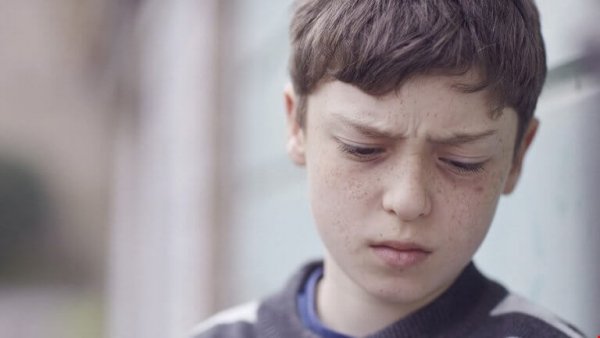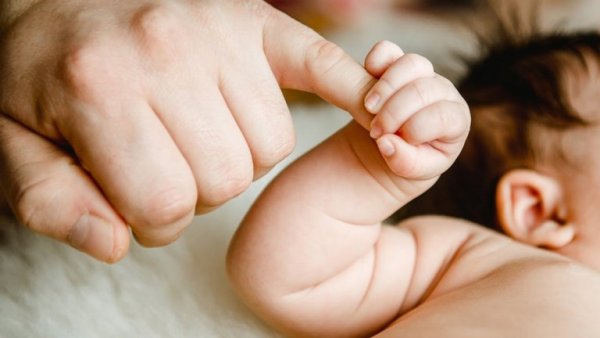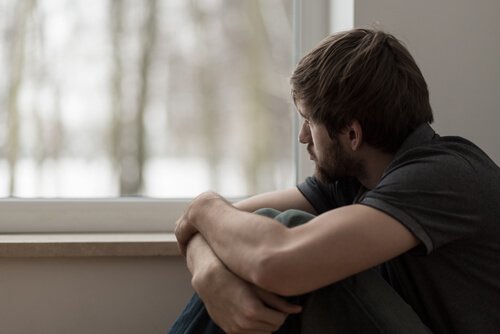The Primal Wound - the Influence of our Childhood Traumas


Written and verified by the psychologist Valeria Sabater
The primal wound (sometimes known as primary wound) is an unresolved trauma. It has to do with the violation of attachment, the breach of that essential bond between a child and its parents. It is the betrayal of emotional needs that haven’t been met. This pain originates at an early age and isn’t resolved. When we reach adulthood we try to anesthetize the pain, and yet it still continues to condition us.
One of the most common terms in the world of psychology, from the perspective of psychoanalysis, is the figure of the wound, as well as trauma. Freud explained to us that these psychological wounds go from the outside to the inside. They occur in our most intimate relationships, especially in our childhood. Far from disappearing with time, the wound survives, remains latent and enters our being. From then on it creates more and more layers and reaches any area of our life it can.
“There is no expanse bigger than my wound, the wound that nobody sees”.
-Miguel Hernandez-
Our early experiences
Sigmund Freud and his daughter Anna Freud revealed for the first time the transcendence of early experiences in the development of our personality. Then, in the 90s, an important book came out in relation to this same topic. Primal Wound tackled a reality that went much further than Freud. In this book we were told about the silent, invisible but permanent trauma experienced by adopted children.
Nancy Verrier, author of the book, pointed out key ideas about the broken bond. These are the affections that are violated, or often unconscious wounds that human beings tend to drag into their adulthood. This is all as a result of a childhood that had so much missing.

What is the primal wound?
Human beings have a need that goes beyond mere food. When a child comes into the world, he needs first of all to feel protected, wrapped in love and supported by affection. Love places us in this world and nourishes us. Love helps us to develop, to develop safely in an friendly environment. We come into this world knowing that we are important for someone.
Because of this, when a psychologist or therapist receives his patient, he will also try to create an environment where empathy and closeness are always palpable. People need these types of nutrients. If we can’t perceive them, or feel them, our brain reacts almost instantly. Suspicion, fear and tension appear.
This is what a child experiences when he doesn’t feel an intimate bond. The primal wound makes its mark on lives when parents are not accessible, either emotionally, or physically. Little by little the mind of that baby, and then the same child when he is a few years old, is invaded by anxiety, hunger, emotional craving, emptiness, loneliness, loss and lack of protection.

Mother and child
We can understand the primal wound almost as an evolutionary sacrilege. This process of “hominization”, which every human being passes through, comes first of all from an exchange of genuine affection and by a constant closeness between mother and child. We mustn’t forget that a baby comes into the world with an immature brain and needs the touch of that skin, and that special bond, in order to continue growing and developing.
If something fails in this process, if something happens in our first three years of life, then there will be an invisible, but deep, fracture. It is an injury that nobody sees. The very injury that will quite possibly incapacitate us in the future in several different aspects of our life. Here are some of them:
Effects of the primal wound
There is a very interesting book that is considered the reference manual in the study of attachment, or bonding. It is entitled the Handbook of Attachment by psychologists Jude Cassidy and Phillip R. Shaver. In this book, the authors claim that the very purpose of the human being is self-realization. Our purpose is to transcend, advance safely, and promote our personal and emotional growth. In this way we can enjoy a full life with ourselves and with others.
One of the most important conditions for this to happen is having in our early years a secure, mature, close and intuitive attachment to our needs. However, if this doesn’t happen, then this primal wound may develop and, with it, the following consequences:
- Insecurity and low self-esteem.
- Impulsiveness, emotional mismanagement.
- Increased risk of suffering various psychological disorders.
- Difficulty in forming establish solid loving relationships.
- A “survival personality” develops. We try to show autonomy and security, but the emptiness still persists. It is common for these people to need times of isolation and solitude. Then at other times they look for closeness, even if that closeness may not be genuine, and may actually be harmful.

How to heal our primal wound
The most appropriate thing to do in these cases is to request professional help. In recent years, therapies such as EMDR (Eye Movement Desensitization and Reprocessing) are becoming more important. It is a technique which combines different types of stimulation and information processing, so that people can bring to light traumatic experiences and childhood wounds, and want to talk about them, recognize them and deal with them better.
It is also worth considering the basic strategies that tend to be used to try and come to terms with, and heal, our primal wound. They are the following:
- Become aware of our latent emotions and assign them a name.
- Say aloud our unmet needs (affection, support, lack of protection, empathetic closeness etc) We must “legitimize” these needs and not repress them.
- Reflect on the loneliness we felt in our childhood. We need to do this without fear, without anger and without shame. Some people avoid thinking about the emptiness experienced in their childhood. They prefer not to think about those years of suffering, because of all the pain and discomfort it makes them feel. We must bring that wounded self into the light – that part of us which is still full of anger because it didn’t experience enough affection and protection.
- Understand that nothing was your fault. The victim is not guilty of anything.
- Allow yourself to release your sadness, and your inner emotions.
- Commit yourself to the change, be capable of transforming yourself, take responsibility for a change that will bring you inner well-being.

Forgiveness
Finally, the experts in how to cope and deal with the primal wound and the trauma that comes with it, recommend us to forgive.
Granting forgiveness to our parents does not exempt them from guilt, but it allows us to free ourselves from their influence. It is simply accepting what happened, accepting the reality of everything we suffered. But, at the same time, being able to offer our forgiveness will allow us to break the circle of pain, and release the burden on our hearts. We will be free of pain, rage and the memories of yesterday.
Let’s consider this carefully. The topic of the primal wound certainly raises great interest, and it’s worthwhile spending time trying to understand this complex psychological reality.
This text is provided for informational purposes only and does not replace consultation with a professional. If in doubt, consult your specialist.








